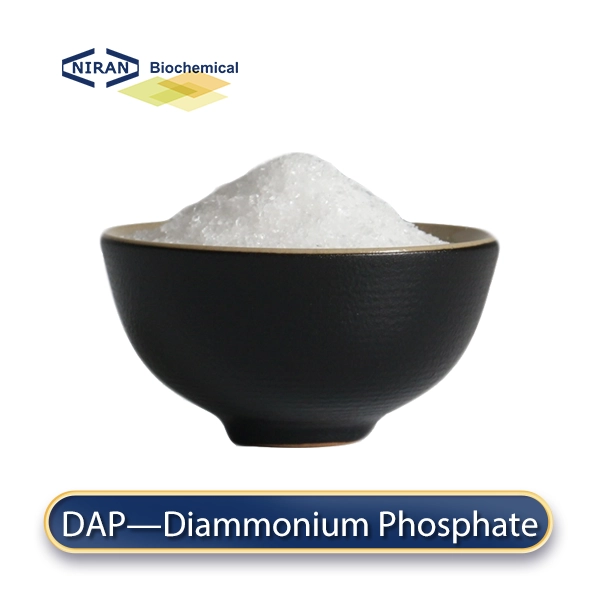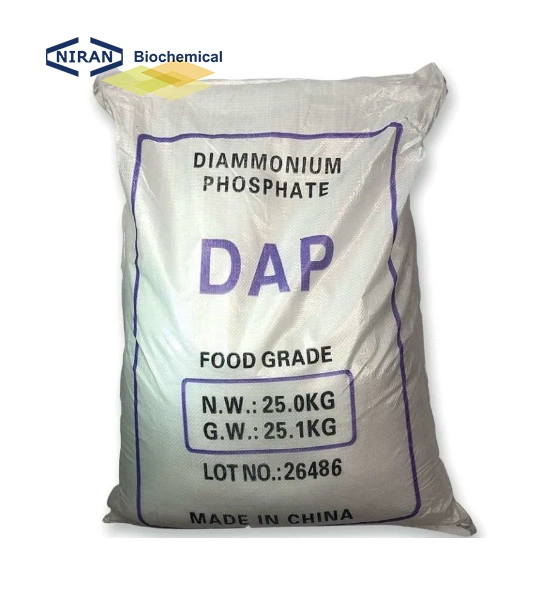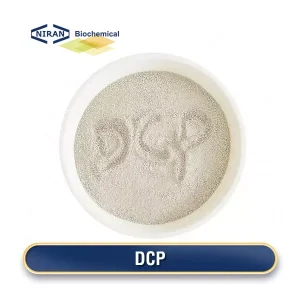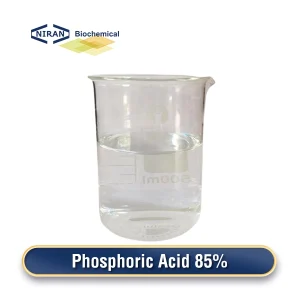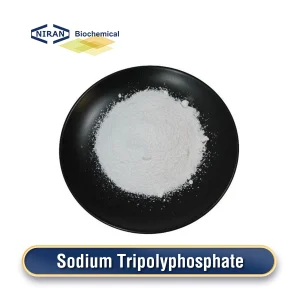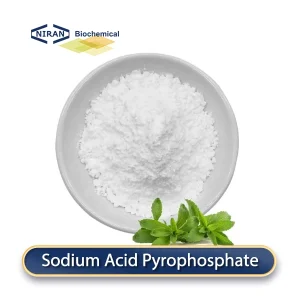Niran Biochemical
YOUR RELIABLE FOOD INGREDIENTS
Send Inquiry
Home » Products » Phosphates » DAP—Diammonium Phosphate
DAP—Diammonium Phosphate
- CAS: 7783-28-0
- Chemical Formula: (NH4)2HPO4
- Certification: KOSHER, ISO, HALAL, FSSC22000, BRC, etc.
- Standard:
- MOQ: 1000KG
- Shelf Life: 2 Years
Inquire Product
Product Description
What is Diammonium Phosphate?
An inorganic salt that resembles white powder or crystal is called diammonium phosphate. It is not easily exposed to air, is soluble in water with ease, and insoluble in alcohol. It finds extensive use in the food processing sector and also finds some use in the chemical, agricultural, and animal husbandry sectors.
There are two preparation processes for diammonium phosphate in China.
The first is the neutralization method, which uses phosphoric acid and ammonia water to react to produce diammonium phosphate. Reactors are typically used to carry out the reaction. The reaction conditions such as temperature, pH value, and reaction time are controlled to ensure that the purity and quality of the product meet food grade standards. It is also the most widely used preparation process in China.
The other is the neutralization reaction of wet phosphoric acid and liquid ammonia. This method first adds a certain amount of hydrogen peroxide to the wet extraction phosphoric acid to oxidize the divalent iron in the phosphoric acid, and then reacts with ammonia gas. After filter pressing, concentration, cooling crystallization, centrifugal separation, and drying, diammonium hydrogen phosphate is obtained.
Related parameters:
| INSPECTION ITEM | STANDARD |
| MAIN CONTENT (AS (NH4)2HPO4) W/% ≥ | 99.0 |
| PHOSPHORUS PENTOXIDE (AS P2O5) W/% ≥ | 53.0 |
| TOTAL NITROGEN (N) W/% ≥ | 21.0 |
| MOISTURE W/% ≤ | 0.2 |
| WATER INSOLUBLE W/% ≤ | 0.1 |
| FLUORIDE (AS F) MG/KG ≤ | 10 |
| ARSENIC (AS) MG/KG ≤ | 3 |
| HEAVY METAL (AS PB) MG/KG ≤ | 10 |
| LEAD (AS PB) MG/KG ≤ | 4 |
| PH VALUE OF 10G/L SOLUTION | 7.6-8.2 |
| CHLORINE (AS CL) MG/KG ≤ | 10 |
| SULFATE (AS SO4) MG/KG ≤ | 50 |
| FERRUM (AS FE) MG/KG ≤ | 10 |
| PARTICLE SIZE (20-60 MESH) W/% ≥ | 75 |
Recommended dosage:
| Food Name | Maximum usage(g/kg) |
| Bread | 2-5 g/kg |
| Biscuits | 2-4 g/kg |
| Yeast fermented products | 1-3 g/kg |
| Carbonated beverages | 0.5-1 g/kg |
| Cheese | 0.5-1 g/kg |
| Yogurt | 0.5-1 g/kg |
| Canned fruit | 0.5-1 g/kg |
| Meat products | 2-4 g/kg |
| Sausages | 2-4 g/kg |
| Canned fish | 0.5-1 g/kg |
| Soy products | 1-2 g/kg |
| Seasonings | 0.5-1 g/kg |
| Salad dressing | 1-2 g/kg |
| Chocolate | 1-2 g/kg |
| Candy | 1-2 g/kg |
| Soy sauce | 1-2 g/kg |
| Vinegar | 0.5-1 g/kg |
| Jam | 1-2 g/kg |
Diammonium Phosphate has a wide range of uses
1. Acid-base regulator: used to adjust the pH value of food, improve taste and preservation effect.
2. Leavening agent: plays a role in the fluffy effect of baked goods, making bread, cakes, etc. softer.
3. Anti-browning agent: can prevent the browning of fruits and vegetables after cutting and maintain the color of ingredients.
4. Anti-caking agent: can prevent powdered substances from agglomerating during food processing and help maintain a dry state.
5. Antioxidant: can extend the shelf life of food and slow down food deterioration.
6. pH buffer: by adjusting the pH of food, stabilize the pH value of food and maintain food stability.
User asked question:
Q: What effect does diammonium phosphate have on yeast?
A: The food industry primarily uses food-grade diammonium phosphate as a leavening agent, dough regulator, yeast food, and brewing fermentation aid. It plays an important role in the fermentation process, promoting the growth of yeast, adjusting the pH value, improving the texture and taste of the dough, and enhancing the water holding capacity of the dough, thereby improving the quality and taste of the food.
Especially when making fermented foods such as bread and pastries, adding a proper amount of food-grade diammonium phosphate can improve the quality and taste of the food.
In addition, diammonium phosphate can also increase the nutritional value of food because it provides yeast cells with two important nutrients, phosphorus and nitrogen, helps yeast absorb other trace nutrients, accelerates fermentation reactions, controls the pH value of the dough, and strengthens and conditions the dough mixture.
Q: What is the use of diammonium phosphate in winemaking?
A: Diammonium phosphate is usually used as a nutrient salt and regulator in winemaking. It can provide the nitrogen and phosphorus sources required by yeast cells, promote yeast growth and fermentation process.
In addition, diammonium phosphate can also adjust the pH value of the wine, help maintain the appropriate acidity and alkalinity, and help to finally brew the ideal taste and flavor.

